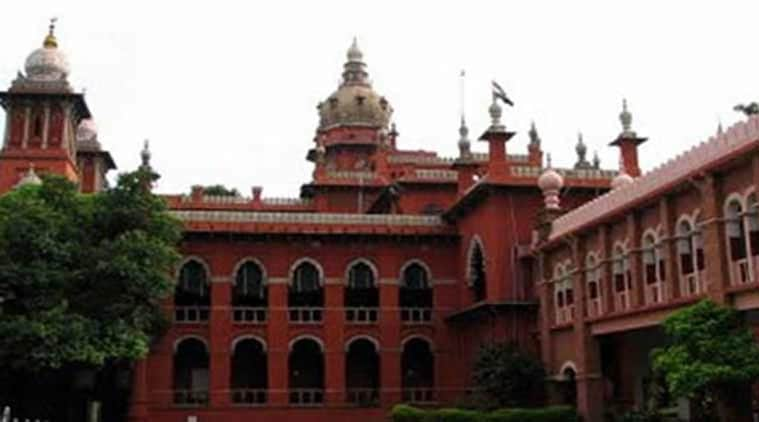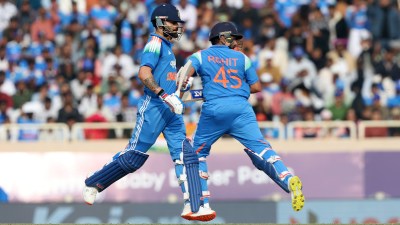Stay updated with the latest - Click here to follow us on Instagram
Tamil Nadu lawyers protest Madras HC decision to discipline them
Madras HC lawyers will not boycott court proceedings since they “believe in negotiations and engagement” with the authorities, but thousands of litigants in lower courts will suffer.
 The disciplinary rules were made following a series of incidents over the last few years, which have grown in intensity since early last year, in which advocates across the state have tried to make the court succumb to pressure and stop proceedings.
The disciplinary rules were made following a series of incidents over the last few years, which have grown in intensity since early last year, in which advocates across the state have tried to make the court succumb to pressure and stop proceedings.
A WEEK after Tamil Nadu lawyers, dressed in courtroom gowns, rallied in Chennai to register their protest against a new set of disciplinary rules framed by the Madras High Court, lawyers from subordinate courts across the state have announced boycott of court proceedings until June 17 to demand withdrawal of the HC notification.
Lawyers who submitted a memorandum to Madras HC Chief Justice Sanjay Kishan Kaul before last week’s rally met Kaul again on Monday with another memorandum demanding withdrawal of the rules.
The May 25 notification by HC, as per the Supreme Court verdict in the R K Anand case of 2009, gives the court several new powers. Among them, judges can debar lawyers who collect money in the name of judges, and those who attend court proceedings inebriated. It warns of action if lawyers tamper with court records, browbeat or abuse judges.
The notification prevents protests inside courtrooms and take out rallies on court premises.
[related-post]
Watch Video: What’s making news
The disciplinary rules were made following a series of incidents over the last few years, which have grown in intensity since early last year, in which advocates across the state have tried to make the court succumb to pressure and stop proceedings. In unruly scenes, there have been protests and slogan-shouting inside courtrooms, as also court premises; some lawyers had asked the Chief Justice to return to his home state, Jammu and Kashmir; and protesters had laid siege to his bench and residence, among many other.
The situation had come to such a pass that the HC had to order deployment of CISF personnel on court premises last year.
Protesting lawyers of both HC and subordinate courts, however, find the new norms against their basic rights and contend that, if imposed, they would curb free performance of lawyers in court.
Stating that they will give the Chief Justice sufficient time to consider their plea, R C Paul Kanagaraj, president of Madras High Court Advocates Association, said: “Justice Kaul promised that the new rules will not be implemented until the three-judge committee that framed the rules comes to a conclusion on our latest memorandum. So we hope HC will withdraw the notification.”
Kanagaraj, who last week sought immediate and unconditional withdrawal of the rules, said their fresh memorandum points at certain clauses in the notification. They include the power of a judge, both of HC and subordinate courts, to debar a lawyer if the latter sends any complaint against a judge to his/her superior without any proof to substantiate the charges. The lawyers’ association argues that there are systems such as as the court’s vigilance cell to unearth evidence, and that such rules will discourage or prevent people from filing genuine complaints.
They are also challenging the rule that lawyers should not browbeat judges, contending that it can be misinterpreted either way.
Kanagaraj said HC lawyers will not boycott court proceedings since they “believe in negotiations and engagement” with the authorities, but thousands of litigants in lower courts will suffer.
A senior jurist said there are around 210 working days in a year, of which 30 to 40 are paralysed by agitations and boycott by lawyers. Considering that there around 7 lakh pending cases in HC, “it would take 100 years to examine and dispose these cases” even if new cases are not admitted, he said.
Maintaining that the HC is open to hear suggestions, Kaul has stated that there were yearlong deliberations before the notification was issued last month.







